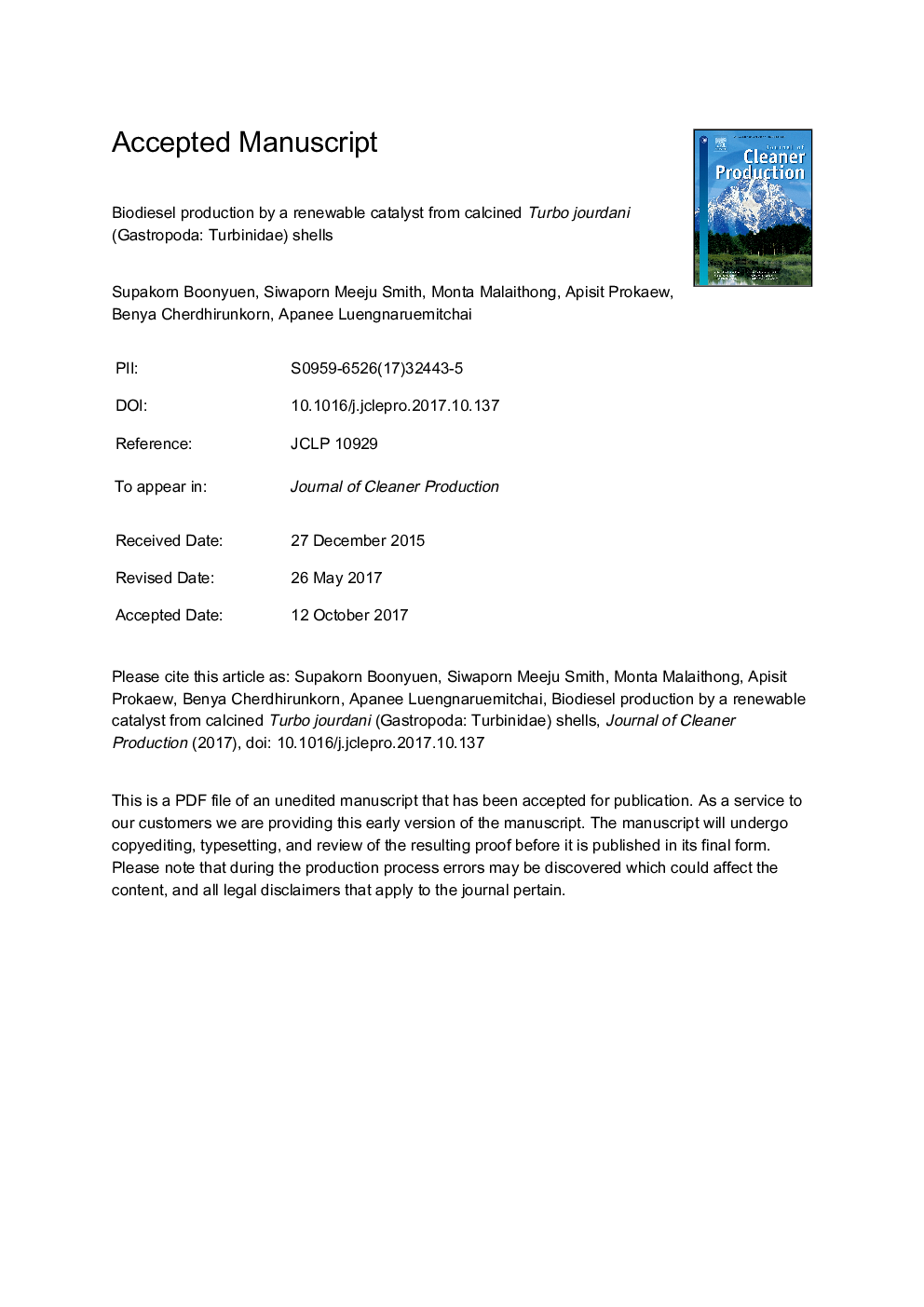| Article ID | Journal | Published Year | Pages | File Type |
|---|---|---|---|---|
| 8098882 | Journal of Cleaner Production | 2018 | 14 Pages |
Abstract
Waste gastropod shells and animal bones are one of the richest sources of calcium carbonate and have been utilized, after suitable treatment, for various applications. The outer lip of waste Turbo jourdani (Turbinidae) shells, a marine snail, was utilized as a raw material for the production of a porous calcium oxide (CaO) catalyst for biodiesel (as fatty acid methyl esters; FAME) production via transesterification of palm oil and methanol. The outer lip of the shell was calcined at 900 °C for 5 h to fully convert the shell (aragonite form of calcium carbonate) into CaO with a porous structure, as characterized and confirmed by thermogravimetric, X-ray diffraction, Fourier transform infrared spectroscopy and scanning electron microscopy analyses. Three key reaction parameters: catalyst concentration, methanol: oil molar ratio and reaction time were optimized in terms of maximizing the oil to FAME conversion level. The best conditions were found to be a catalyst concentration of 10 wt%, a 3:1 methanol: oil molar ratio and a 7 h reaction time to give a >99% oil to FAME conversion level. Evaluation of the reusability of the catalyst revealed that its efficiency decreased with each sequential use but that a >90% conversion level was still obtained after eight sequential uses before it then declined markedly.
Related Topics
Physical Sciences and Engineering
Energy
Renewable Energy, Sustainability and the Environment
Authors
Supakorn Boonyuen, Siwaporn Meejoo Smith, Monta Malaithong, Apisit Prokaew, Benya Cherdhirunkorn, Apanee Luengnaruemitchai,
